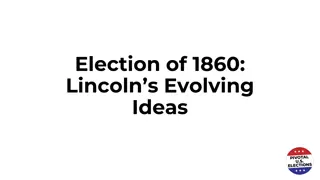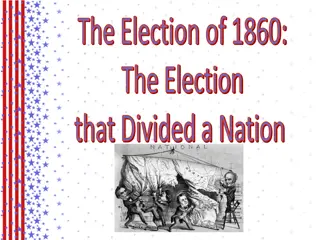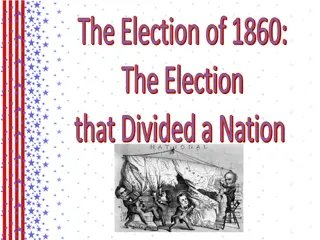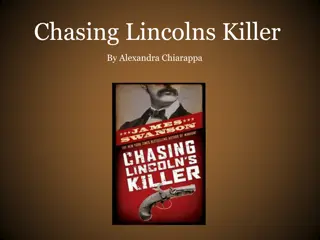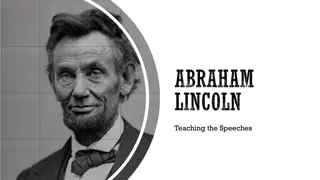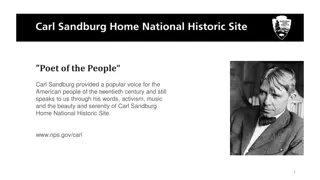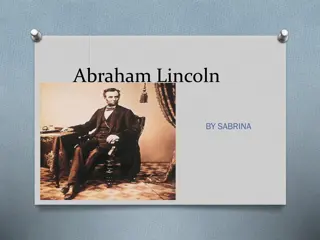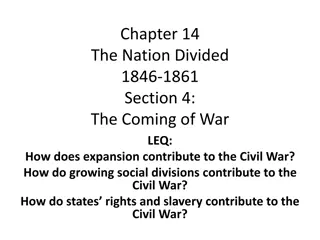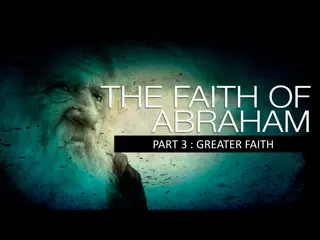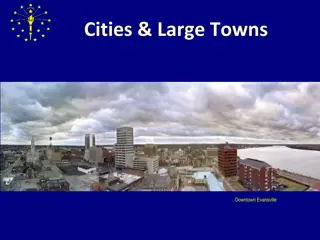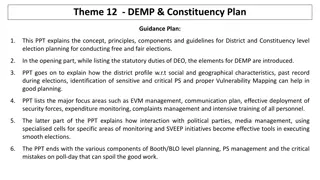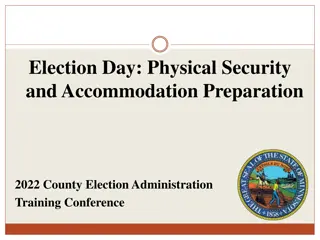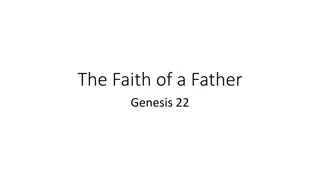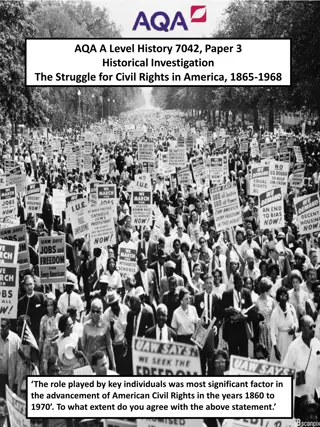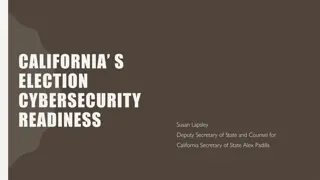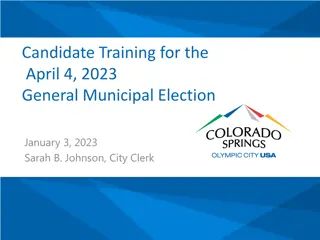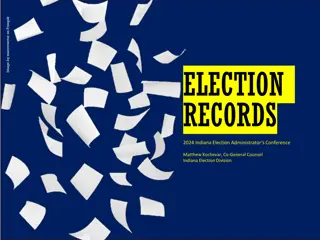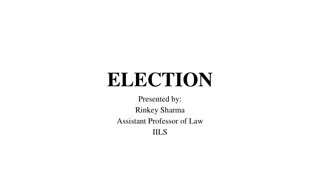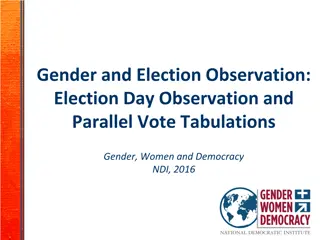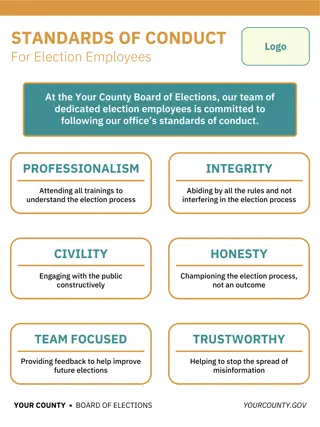Abraham Lincoln and the Election of 1860
Abraham Lincoln, a self-educated Illinois frontiersman, entered national politics through debates against Stephen Douglas in 1858. The 1860 Democratic Convention faced division over slavery issues, leading to the emergence of multiple candidates. The Republican Convention strategically nominated Abraham Lincoln, focusing on nonextension of slavery and other appealing platforms. The Election of 1860 highlighted the stark divide between Northern and Southern ideologies, ultimately leading to Lincoln's victory.
Download Presentation

Please find below an Image/Link to download the presentation.
The content on the website is provided AS IS for your information and personal use only. It may not be sold, licensed, or shared on other websites without obtaining consent from the author. Download presentation by click this link. If you encounter any issues during the download, it is possible that the publisher has removed the file from their server.
E N D
Presentation Transcript
The Illinois Rail-Splitter Who was Abraham Lincoln? Physically awkward tall, skinny He really was born in a log cabin Self-educated Frontiersmen Married above his station Lawyer Honest Abe Served one term in Congress Joined new Republican party in 1854
Lincoln Douglas Debates Abraham Lincoln came to national attention in 1858 when he ran against Stephen Douglas for his Illinois Senate seat Lincoln challenged Douglas to a series of debates risky because Douglas was one of the nation s best debaters 7 meetings from August to October 1858
1860 Democratic Convention Democrats met in Charleston, SC to choose a presidential candidate for the election of 1860 Northern Democrats wanted to elect Stephen Douglas, but southerners saw him as a traitor Many of the southern delegates walked out Met again in Baltimore to choose a candidate Douglas was chosen, but the southern Democrats again walked out and met separately to choose a candidate
Democratic candidates in the Election of 1860 Southern Democratic candidate John C. Breckenridge Platform: Extension of slavery to the territories Annexation of slave populated Cuba Northern Democratic candidate Stephen Douglas Platform: Belief in popular sovereignty Against obstruction of the Fugitive Slave Law Constitutional Union (border states) candidate John Bell Platform: Wanted a compromise Union, the Constitution, and the Enforcement of Laws
The Republican Convention Thrilled at divided Democratic party Decided not to nominate William Seward because of his radical beliefs ( irrepressible conflict over slavery) Nominated Abraham Lincoln on 3rd ballot Platform appealed to all in some way: Nonextension of slavery Protective tariffs No abridgment of immigrant rights Pacific railroad Internal improvements financed by the government
Election of 1860 Two elections: Northerners chose between Lincoln and Douglas Southerners chose between Breckenridge and Bell Lincoln not on most ballots in the South Results:
Secession December 1860 South Carolina secedes from the Union Over the next 6 weeks, six other lower south states secede
Confederate States of America February 1861 Confederate States of America created President: Jefferson Davis Vice President: Alexander Stephens Lincoln doesn t become president until March 4, 1861 President Buchanan does nothing as the south secedes Alexander Stephens Jefferson Davis James Buchanan


